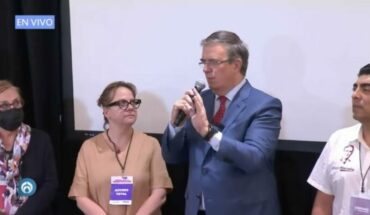The Third Asia-Pacific Indigenous Tourism Conference has recently been held, an international meeting that, together with allowing the sharing of trends, learnings and innovative experiences in the field of tourism of indigenous peoples, has also been a space to stimulate and promote the activity of grassroots communities. The exchange and learning generated by these days undoubtedly contribute to position and relieve this tourism as a way of linking and caring from the territories of these peoples, as controlled spaces and led by the same communities, seeking to share and meet with the visitor. This establishes indigenous tourism as an opportunity to share and learn from the first source about these ancestral cultures.
The pandemic has strongly affected tourism, without a doubt it has been one of the activities that has had the most impact, and especially indigenous tourism, so this conference opens a path for economic reactivation and to position this type of tourism of great relevance for countries and their inhabitants. At UC we feel privileged to be able to contribute from research and academia to this reactivation. Particularly in the Villarrica Campus, located in the Araucanía Region, through our Center for Local Development (CEDEL UC) and the Center for Intercultural and Indigenous Studies (CIIR), we started in 2007 a school of tourist guides and local gastronomy that added more than 150 students belonging to the Mapuche people. This initiative was key in the valorization of the territory, its heritage in global terms and in becoming truly aware of the need for care and recognition of each of the spaces we inhabit. This led us within the university to continue advancing in this line through various training, research and transfer initiatives.
As a consequence of the above, we have contributed to this conference on various topics that have been organized in three main axes: research in indigenous tourism and its current challenges; the experience of autonomy, territorial management in indigenous tourism; and indigenous tourism in times of crisis and resilience. Thus, the tourism of native peoples is presented as an opportunity for research, since its activities and experiences impact the various territories, consolidating a series of relationships between the different actors, such as tourism entrepreneurs, tourists, public officials, civil society and communities involved. Therefore, through these academic and dissemination activities, we seek to generate a dialogue on research in indigenous tourism, from a comparative and critical perspective.
The initiatives in development within our university are significantly related to these issues, including the recent interculturality program that we are promoting in an integral way and for years, our active role in promoting the revitalization of the Mapuche language, -Mapuzugun-, an interdisciplinary initiative of the Faculty of Letters, the CIIR and the Villarrica campus, -oriented in a preferential way to education, sustainability and the development of the original peoples-, in the south central territory of our country.
This tourism of native peoples, together with opening economic opportunities for the communities, in a very relevant and priority way allows us to make known their different cultures and worldviews. From the university as a whole and at the Villarrica UC Campus in particular, we reaffirm our commitment to indigenous tourism and to a collaborative work with the various organizations that lead it. Indigenous peoples are heirs of ancestral cultures and practice unique ways of relating to people and the environment, so in all the ways we relate to the interior of our country and especially the university community, we have a lot to learn. Indigenous tourism is a valuable and real contribution to intercultural dialogue and the fraternal coexistence of all peoples. The challenge we take on today is its promotion and development.
Challenges of tourism of indigenous peoples
October 11, 2021 |





